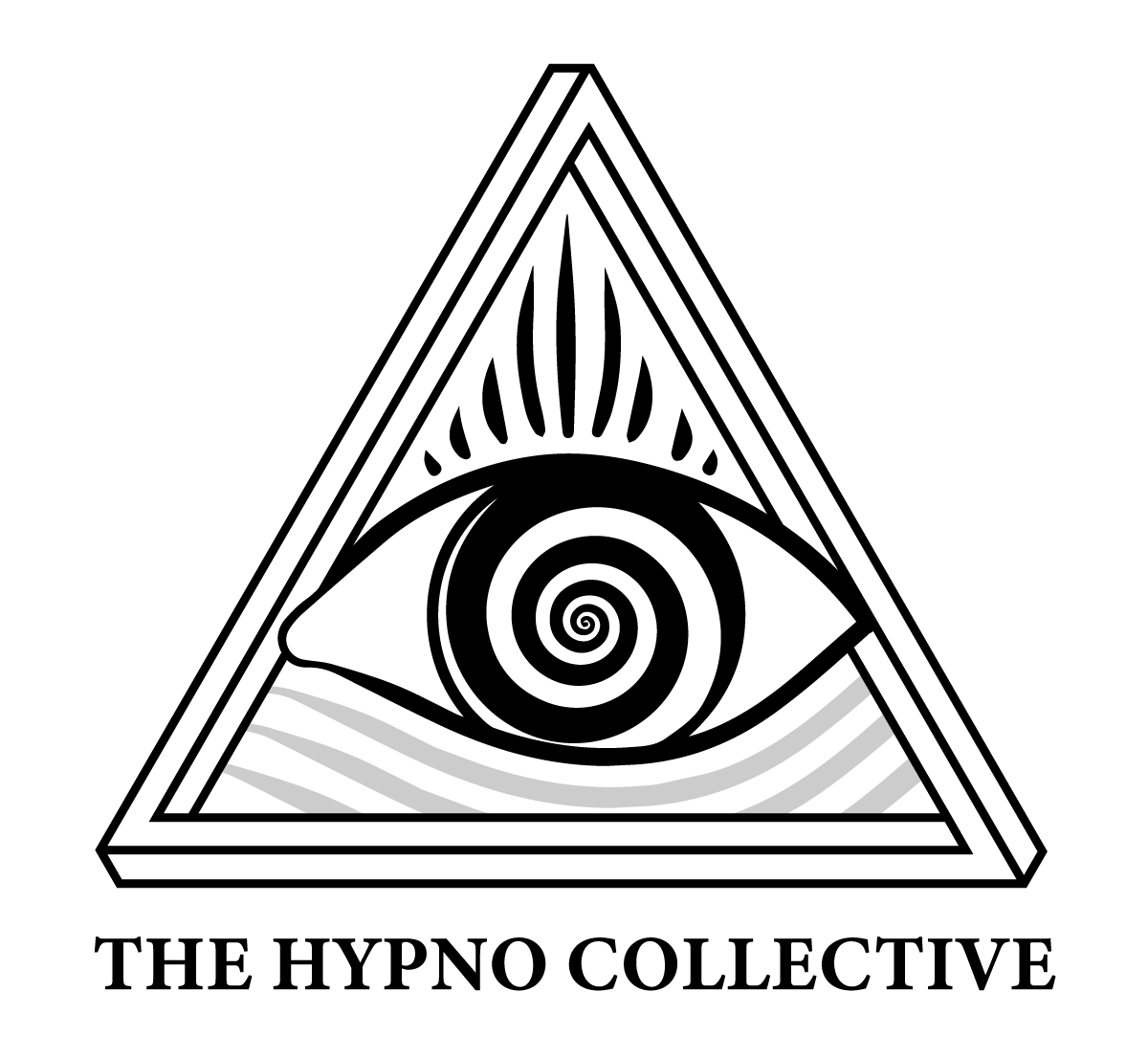
Article by Mutt
Reposted content with full permission from Mutt.
Photo by Ian Taylor / Unsplash
Every day, someone asks me when I’m going to teach Building Subject Agency again. I’m proud of the class, and glad it helps people, but truly there’s only so many times a year I can teach it. This is my attempt at converting the class into a blog post.
What is Subject Agency?
What is this wonderful thing that we want to build? You’ve possibly heard much about it, sometimes with an insinuation that you should know what it is already and that it’s just so intuitive and easy.
Well, sometimes it’s not so intuitive, or not so easy. Let’s start by breaking down the concept into smaller pieces and we will build up from there.
What is a Subject?
Traditionally, we think of the subject as “the person being hypnotized by the hypnotist.” Lately, some people have been promoting terms like “hypnobottom,” which I think is fine; and “hypnotee,” which I dislike.
I like subject the most because it evokes classic hypnosis tropes, and mad science vibes, and I like my hypnosis kinky. More importantly, terms like “hypnotee” frame the subject as a passive participant. The appointer appoints the appointee. The adopter adopts the adoptee. The hypnotist hypnotizes the hypnotee.
How we frame hypnosis shapes our experiences of hypnosis. If we frame hypnosis as something done to the subject by the hypnotist, if we frame the subject as passive, then we encourage subjects to experience hypnosis as a passive experience.
The word “subject” does not need to imply submissive or passive. Let’s reframe. A subject is the central topic of a book. In linguistics, a subject is the primary argument of the verb. A subject, grammatically speaking, is active.
Instead of: “The hypnotist hypnotizes the subject;”
I want you to think: “The subject enters trance.“
What is Agency?
Agency in the context of hypnosis is fundamentally the same as personal agency in everyday life. Here is an explanation that I really liked:
“
Personal Agency is one’s ability to control their actions and interactions with others. Personal Agency in life is really simple and something most people do naturally. You exercise personal agency when you decide what to have for dinner that day or what clothes you want to wear. In some cases, you might only choose things appropriate to your circumstances (such as work appropriate clothes[…]), but in every case it is still your decision and you have the ability to decide to do what you want over any external requirements ([…] like when lactose intolerant people still eat dairy.) — Astrid Zigliotto, “Personal Agency,” Discord post dated April 25th, 2024.
Not everyone always has agency. Captives and prisoners are denied agency when confined to a locked cell. Patients in a hospital might be denied agency and disallowed to leave until discharged. Children and adolescents, in our society, frequently are denied agency, and act in extreme ways in an attempt to exert agency or butt up against the restrictions placed on them.
Think about the child in the grocery store. The grocery store is a loud, chaotic, and stressful environment which the child did not choose to be in and does not have the agency to leave on their own. Think of how many times you have seen a child throw a temper tantrum or have a meltdown in a store? Faced with a stressful situation and unaware of any options for how to handle it, the small human becomes emotionally dysregulated and fights their caretaker.
Adults, in our society, are generally permitted the agency to enter or leave the grocery store whenever they want. Adults do not have meltdowns in grocery stories with the frequency and intensity of children. The adult knows that they can simply use their own two feet (or wheels) to leave and nobody will stop them (so long as they are not carrying unpaid-for produce with them.)
In linguistics, the agent of a sentence is the one that is performing the verb, even if it is not the subject of the sentence. When we say “the subject is hypnotized by the hypnotist” or frame a subject as the “hypnotee” we are grammatically placing the hypnotist as the agent of the sentence.
But in the sentence “the subject enters trance,” we are placing the subject as the agent. If the subject has agency, and has entered the trance, then the subject also has the agency to leave the trance.
Agency in Hypnosis
Subject agency is the ability of the subject to influence their own experiences of hypnosis. Indeed, all these things and more are completely under the control of the hypnotic subject, who could choose to do them at any time:
- Wake up out of trance, independently, without the hypnotist.
- Re-enter a trance, without the hypnotist.
- Reject or stop following hypnotic suggestions, independently.
- Interpret and modify suggestions, independently.
- Understand the intentions of the hypnotist and context of the BDSM scene, and follow suggestions appropriately and safely.
- Communicate with the hypnotist while in trance, including using safewords.
- Participate in enhancing and strengthening hypnotic experiences.
- Move their body as needed to avoid falling over or straining a joint.
Thinking about someone without agency: Truly, the child could have tried to climb out of the shopping cart and ran out of the store—but they do not attempt this because they are smart enough to know that every step of the way someone bigger and more powerful will try to stop them and likely succeed, and where would they go? They can’t drive a car or take the bus. The child truly lacks agency, and can feel that, and so does not even attempt to leave the store independently.
But what about a hypnotic subject? Why does the hypnotic subject not simply leave the trance as an adult leaves the grocery store? What is stopping them?
Why subjects don’t exert agency
The truth is, you already have subject agency, you just might not know it yet.
The way many of us were initially taught about hypnosis often teaches us to see subjects as lacking agency. What you think and believe is what you will get, when it comes to hypnosis and other perceived reality-warping practices.
The erosion of a subject’s sense of agency begins with cultural depictions of hypnosis as mind control in the cartoons and movies that likely gave many of us this bizarre and beautiful fetish. It was further perpetuated when the Hypnosis 101 class focuses entirely on what the hypnotist can do, and nothing for the subject.
Even when a subject knows subject agency exists, and wants to exert agency, sometimes we still struggle.
Here are some contributing factors to subjects struggling with their sense of hypnotic agency:
- Being particularly good at dissociating, possibly due to a dissociative disorder.
- Being motivated against exerting agency dues to an attachment to erotic fantasies of mind control, or fears that exertion of agency would mean hypnosis is “fake” or would stop being arousing.
- Erosion of felt personal agency within a relationship dynamic, implied suggestions, or certain techniques of manipulation.
- Erosion of felt personal agency due to past trauma.
- Struggles with personal agency in daily life, such as having trouble saying “No” to people.
- Feeling a pressure to “perform” for the sake of the hypnotist.
- A strong truly held belief that hypnosis actually is real mind control, or that a separate “Subconscious Mind” is exerting its own agency overriding the conscious mind.
The attachment to erotic fantasies in particular is possibly the most common reason. There are many mind control fetishists and hypnophiles who would rather continue to follow an unpleasant hypnotic suggestion that they do not enjoy than to risk breaking the illusion of hypnosis being real mind control.
Dear reader, I hate to break the news to you, but mind control is not real. Our perceived experience of reality is remarkably plastic and we can simulate an experience that feels like mind control, and through abuse and manipulation you can certainly erode someone’s sense of personal agency and exert control over them that way, but true mind control like we see in the movies simply is not real. The American government tried very hard to invent true mind control and while it did give us LSD, it never resulted in real mind control. Just another disappointing failure to deliver from our elected officials.
Disputing Common Misconceptions
Mind control isn’t real. Disappointing. What else isn’t real? Santa Claus? Homeopathies? Morality? The Subconscious Mind? Correct. None of these are real.
The hypnotist is not programming the subject.
A lot of people in the kinky hypnosis community work in computer programming or IT; and think of subjects as computers they are programming. Computers take everything literally. Computers do exactly as they are told and follow every instruction they are given and only the instructions they are given.
Humans are not computers. (Sorry, drones!) Brains do not work this way. Hypnosis does not work this way. More on this later.
On “All Hypnosis is Self-Hypnosis”
I don’t like this phrase. It’s slightly off from the truth and doesn’t communicate agency. Being slightly off from the truth is even worse than being wrong. Do we say that all emotions are “self-emotions” or all arousal is “self-arousal?” How about your desire to drink a cool and refreshing Pepsi on a hot summer’s day, poured slowly into a chilled glass of ice. Did you do that to yourself?
Why do people use the HeadSpace app if all meditation is self-meditation? Why do people want to go to war with countries they’ve never heard of?
We are influenced every day all the time by an uncountable number of things. Personal agency is not the same as everything that we feel or experience being our own choice or fault.
When we exert agency, we are exerting our own influence upon ourselves, which often can be stronger than any other influencing factors, including hypnosis. This does not mean that nothing else ever influences us, or that we can simply choose not to feel unwanted emotions.
I will provide an alternative slogan to “all hypnosis is self-hypnosis” later.
What Agency is Not
‘Subject Agency’ is not an excuse for ignoring someone’s limits or consent. There are some who have used “they should have used their subject agency” as a victim-blaming excuse in cases of abuse or consent violations. Let it go on record that I fundamentally reject the notion that the existence of subject agency obsoletes the necessity of good consent and negotiation practices in any intimate setting whether BDSM or vanilla sex.
Agency can be built, but it can also be eroded.
Abuse in a relationship is about power and control. The abusive dynamic denies agency. Whether it is “I am the parent, and you are the child” or “I am the husband, and you are the wife,” the abusive human has claimed power over the human experiencing abuse. Some types of abuse could be understood as methods of eroding someone’s sense of personal agency, or taking their agency away by force. In many abusive dynamics, the person experiencing abuse truly could use their own two feet and just leave the dynamic at any time, but being trapped in an abusive dynamic leaves someone feeling unable to leave. They do not feel a strong sense of agency.
Learning to rediscover and utilize one’s agency is a part of healing from an experience of abuse. Survivors of abuse must learn how to feel safe saying no, make their own decisions with confidence, and take responsibility for their own life rather than focusing entirely on people pleasing. Healing from abuse can be about rebuilding the ability to use your own two feet to leave a bad situation.
The trauma of a sexual assault or other consent injury in a BDSM context is less often about experiencing sexual intercourse and more about experiencing one’s agency being overpowered and denied. A feeling of powerlessness, or a fear that anyone at any time could use your body in that way again. It’s dehumanizing in a not-hot way. Sometimes the trauma is just the breaking of trust, or the shock that someone does not care about your own desires or well-being so long as they can use your body to pursue their own urges.
If a hypnotist I play with tries to use hypnosis to coerce me into something I do not consent to, that breaking of trust alone is injurious to our relationship whether or not I actually feel compelled to participate in the act against my consent.
If someone tells you that you injured their consent, before you try to litigate what happened and justify yourself, consider this: Perhaps they felt unable to use agency or communicate at the time, but they do now. So now is the time to be responsible and responsive to what is being communicated. If you care about this person, and if you are doing BDSM together then I hope you care at least a little, then healing your relationship means responding to this pain first and foremost. Do not tell them “you should have just used your agency.”
Why Should We Want Subject Agency?
Some of you may have gotten to this point and already feel motivated to build your subject agency in yourself or your play partners. Some might even be able to stop reading here and already find that their subject agency has totally improved simply by learning about the concept.
But others may be asking: “Why would I want myself/my subject to exert agency in a mind control-themed BDSM scene?The hot part is the mind control!”
There are many benefits to subject agency, even for the mind control fetishists who want hypnosis to feel like mind control.
For one, it’s simply safer. Empowering the subject to protect their own safety regardless of what the hypnotist says or does can only make your BDSM scene safer. Having this ability to add safety to your scenes also means that you can have more intense, flexible, dynamic, or exciting scenes.
When playing without strong agency, you must add caveats to every suggestion: “Obey me only when it is safe and reasonable to do so.” Were you told this in your first Hypnosis 101 class? That you must always say the magic words “only when it is safe and appropriate to do so” after every post-hypnotic suggestion? Is that fun for you?
When your subject has the agency to understand your shared intentions, then you can just phrase your suggestion as “you are going to obey everything I tell you to do” without adding the caveat. How do we ensure that the subject only obeys commands that are safe, appropriate, and desirable to follow? Because before the trance you have an entire BDSM kink scene negotiation discussing consent, boundaries, limits, etc. and come to a mutually shared understanding of how far this suggestion is meant to go. There is no reason these things have to be established while in a trance state rather than before the scene begins.
Personally, I think it is a lot hotter to hear “you are going to obey everything I tell you to do” than “you will feel a desire to obey me within reason, if you want to, if it’s safe, when nobody else is in the room.”
When your subject is an active participant, the hypnosis can be stronger, as the subject can assist the hypnotist in creating the desired experiences of hypnosis. The subject can collaborate with the hypnotist, and be more creative in what kinds of scenes are possible. Communication improves in and outside of trance. The subject is able to get exactly what they want from every trance by participating in shaping their own experiences.
Remember the child without agency who exhibits extreme emotional behavior when confronted with an experience they do not wish to be having and have no power to leave? Many so-called abreactions are more-or-less a similar type of emotional dysregulation experienced by someone who is having an unpleasant experience they feel unable to stop participating in without the help of a hypnotist to tell them the magic words that give them permission to stop experiencing the unpleasant thing.
Panic attacks are cyclical. Once dysregulated, the recognition that one is having a panic attack further perpetuates the panic attack. In the context of hypnosis, this can look like the recognition that you are experiencing something unpleasant due to hypnosis reinforcing the reality that you are creating through hypnosis, the very reality that you do not wish to be experiencing. Sometime, just like a panic attack, the looking thought “I am having an abreaction” reinforces the creation of the negative experienc.
Now imagine that you feel a strong sense of agency over your experiences of hypnosis, and you experience something unpleasant. Knowing that you have the ability to end the experience on your own, if needed, can in itself be a relief valve that slows down the process of approaching a panic attack. Some subjects will feel able to simply stop the experience and wake up immediately, without panicking or having an extreme response, while others might choose to move through the experience feeling safer in their ability to stop at any time. Some subjects may be able to use their agency to slow down the experience long enough to speak their safe word and signal to the hypnotist to assist in ending the experience, without having to panic to get there. More subject agency, means fewer abreactions.
A subject with strong agency is less dependent on the hypnotist. What a huge relief of the burden carried by hypnotists. Subjects with strong agency can transfer suggestions, feelings, or trigger phrases from one play partner to another—if desired—without needing to create the suggestions all over again with the new play partner. A subject with strong agency can cleanup their own lingering suggestions at the end of a scene, or if a scene ends abruptly and unintentionally. A subject with strong agency will be able to access their full submissive and trancey feelings with any play partner at any time, as they recognize that they own those feelings, and won’t need every new play partner to create those feelings from scratch. Subjects with strong agency will also have better subject skills in general, and will be better at manifesting tranceless suggestions or other often-considered more “advanced” styles of hypnosis.
Are you convinced yet? Subject agency sounds amazing, doesn’t it? So how do we get started?
Are you convinced yet? Subject agency sounds amazing, doesn’t it? So how do we get started?







